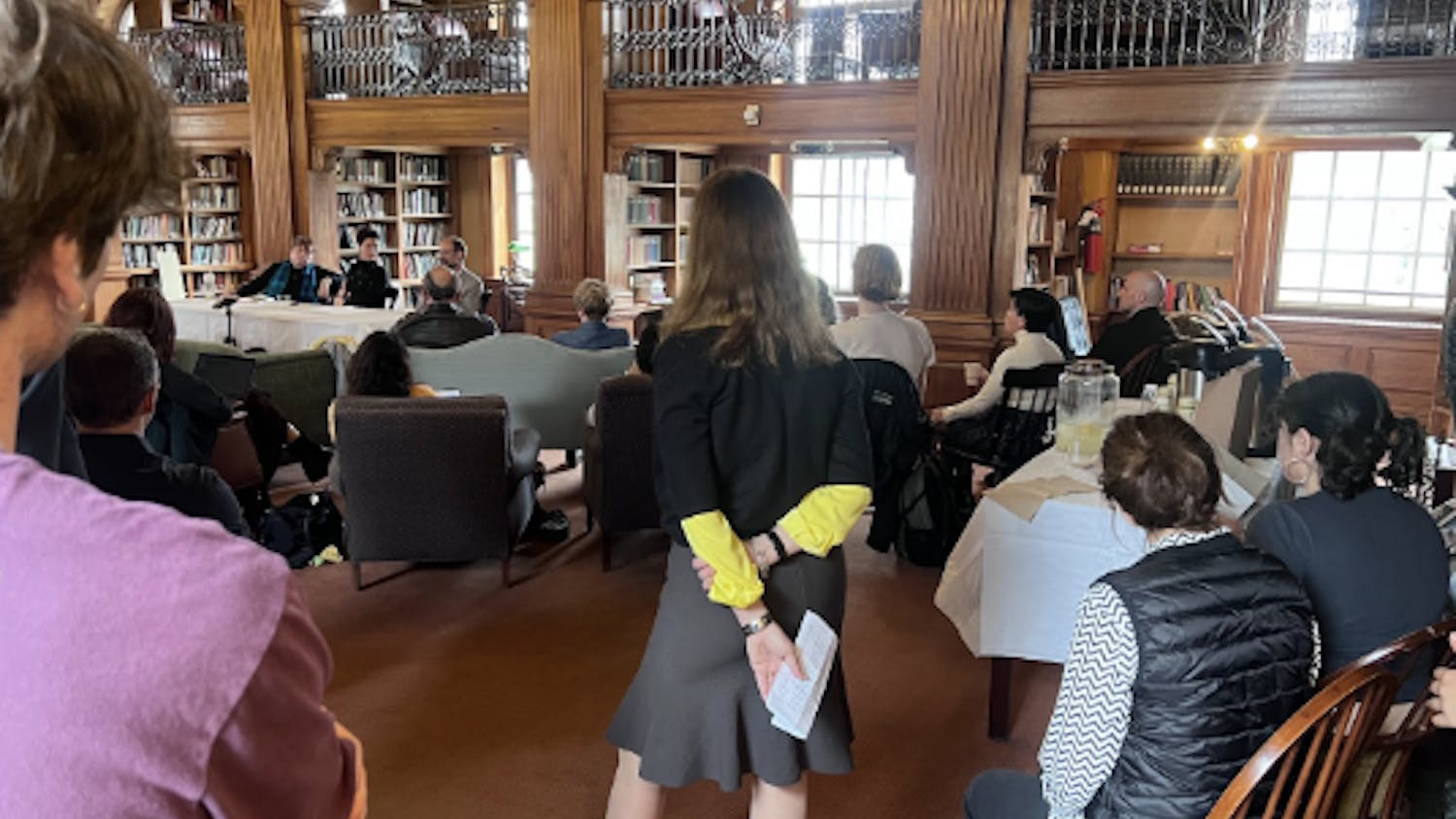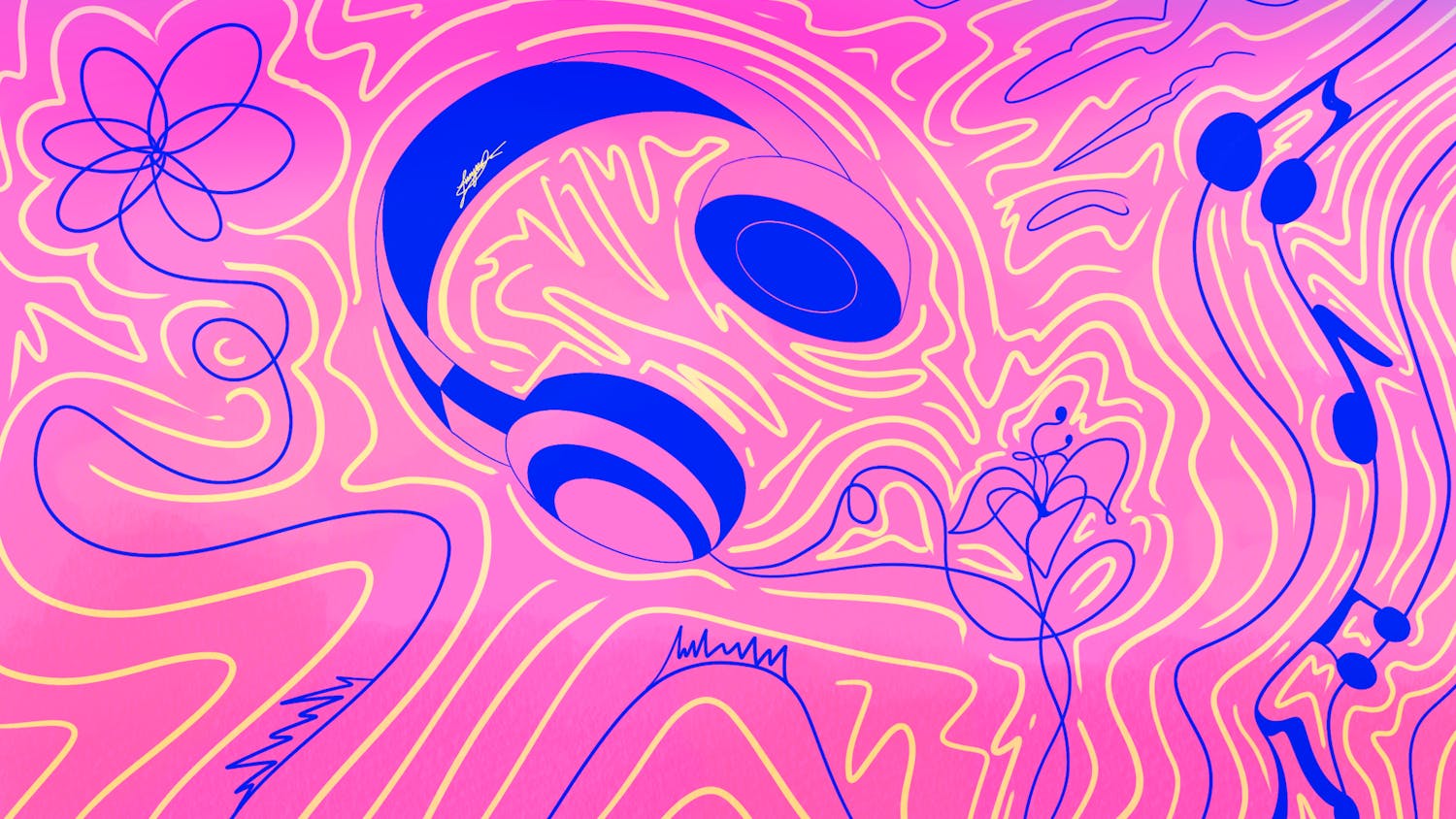It's damn hard to sound good while hopping genres. When you're a privileged white guy in your thirties from L.A., it's tough to get away with alternating between diverse musical styles such as rap, dirty blues, soul and country. Yet somehow, Beck always finds ways to take traditional genres and make them his own. Sometimes, he makes up new genres altogether.
I should probably state up front that I was not a big fan of Beck in his early days, when he was experimenting with various forms of sonic weirdness. Like most people, I bought his albums "Mellow Gold" and "Odelay" mostly for radio-ready songs like "Loser," "Devil's Haircut" and "The New Pollution." The only tracks from "Midnite Vultures" that made it onto my hard drive were the single "Sexx Laws" and the outstanding R&B crooner "Debra." In my opinion, his most straightforward albums -- "Mutations" (which Beck himself dismissed as a mere stopgap release) and "Sea Change" -- were actually his best.
There's a new challenger for the title of best Beck album, though; "Guero" is the artist's most mature release to date. It's not "mature" in the sense that "Sea Change" was mature. Rather than being a collection of acoustic ballads about love and heartbreak as "Change" was, "Guero" actually sees Beck returning to the messed-up lyrical complexity that marked his "Odelay" years. However, the new album succeeds by synthesizing the best elements of his entire career, including the nods to Hip-Hop, Latin music and acoustic balladry that one has come to expect. Often, these assorted references coexist within the same song.
It's usually a terrible idea to switch genres so frequently. Many well-intentioned rockers with a few blues and world music albums in their collections attempt to pay homage to these influences, only to produce records full of derivative, unaccomplished crap. (Damon Albarn, I'm looking at you.) Yet for Beck, it somehow works.
On tracks like "Hell Yes," he talk-raps about "fax-machine anthems" and "perfunctory idols rewriting their Bibles / With magic markers running out of their ink." The Dust Brothers-produced beat manages to sound contemporary and retro at the same time, as a Japanese-accented woman's voice intones, "I like your bass. Your beat is nice." (Also contributing her vocal talents to the project is an uncredited Christina Ricci.)
Another highlight is "Broken Drum." At first blush, it sounds like an outtake from "Mutations," but the menacing production soon makes it a different animal entirely. The lyrics are a surprisingly direct address to a soon-to-be-former lover, calling to mind a line from the late Elliott Smith's "Pitseleh": "The first time I saw you, I knew it would never last." In fact, "Broken Drum" could just as easily be addressed to Smith, who was a good friend of Beck: "Your setting sun / Your broken drum / Your little drugs / I'll never forget you." Beck has never made music quite like this before.
The album gets its title from the song "Qu Onda, Guero," which basically means, "What's up, white boy?" An animated Flash video for the track on Beck's website perfectly captures the song's essence, with bright colors and simple shapes used to represent images of Beck's East Los Angeles haunts as he raps about things like "the vegetable man in the vegetable van / With a horn that's honkin' like a mariachi band." True to form, Beck also manages to name-check Yanni, James Joyce and Michael Bolton.
For most listeners, the album's pinnacle will probably be "Girl," an upbeat slice of electro-pop that that features an energetic, sunny rhythm and a hot girl on the beach. With characteristic sneakiness, Beck manages to insert sinister images into the song as well: a noose, a landfill and a pile of bones bleaching in the sun.
On "Farewell Ride," we get to hear what Beck and the Dust Brothers can do while working within the limits of a simple blues structure. While some may simply see it as an anti-drug anthem ("All I see is / Two white horses in a line / Carrying me to my burying ground"), Beck's mastery of the blues lyric as an artistic form allows the words to take on a more universal tone. Cocaine might be one example of a "farewell ride," but so is anything that blinds us from "the face of kindness" and "the morning roses" -- the things that make life worth living.
Beck's albums have always felt authentic, but they have occasionally suffered from unevenness. Sometimes, like on "Midnite Vultures," substance would be sacrificed for the sake of style. Other times, like on "Sea Change," the opposite problem emerged.
However, "Guero" is the sound of a man making the music he genuinely knows and loves. Beck manages to tame his far-reaching ambition by wedding his dueling impulses: the musical versus the lyrical, the comic versus the serious and the experimental versus the traditional. There is no pretense here. This is the sound of a genuine American troubadour.



